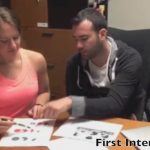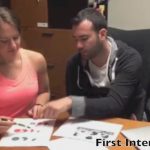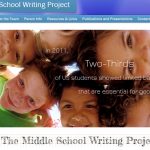Tag: Development

Advancing Social-communication and Play (ASAP): An Intervention Program for Preschoolers with Autism
The primary aim of the Advancing Social-communication And Play (ASAP) intervention is to promote the social-communication and play skills of preschoolers with autism spectrum disorder (ASD) being served in public preschool programs. The ASAP grant project was a four-year, multisite study funded by the Institute of Education Sciences (IES), U.S. Department of Education was to exam … Read more

Promoting ASAP Collaboration through Technology (PACT): An Intervention Modification to Enhance Home-School Collaboration
The overall purpose of this Goal 2: Development and Innovation project is to enhance the existing Advancing Social-communication and Play (ASAP) intervention through development of a technologically supported system of home-school collaboration. ASAP was originally designed as a classroom-based intervention, in which the educational teams serving preschool-aged children with auti … Read more

Testing Novel Measures of Community Function and Participation in Adults with Cerebral Palsy
Cerebral palsy (CP) is the most common cause of physical disability in children, impacting approximately 1 in 500 young Australians and 2-3 in 1,000 young Americans. Most of these children live to within five years of a typical lifespan, depending on the severity of the disorder. However, after age 21 when they exit the school systems, the availability and accessibility of formal … Read more

Examining the relationship between accessibility to resources, service use, and community function in adults with ASD
The objective of this pilot study is to use a Geographic Information System (GIS) approach to understand how population density and accessibility to community resources relates to service use, social participation, and functional outcomes in adults with autism spectrum disorder (ASD). Examining the impact of accessibility on community function outcomes may highlight discrepancies … Read more

Examining person and environment factors associated with community participation for adults with Autism Spectrum Disorder (ASD)
This study combines innovative Global Positioning System (GPS) and Geographic Information System (GIS) measures to describe real-time community integration activities of adults with ASD living with family or in a group home, and investigates critical person and environmental factors associated with participation. These results will be combined with adult outcome survey data to ex … Read more

Written Language Problems in MIddle School Students: A randomized Trial of thE SRSD Approach Using a Tier 2 Intervention Model
RFA Goal: Efficacy and Replication Purpose: The primary purpose of this project is to establish a stronger scientific foundation for educational practice within the writing domain by utilizing recent advances in cognitive science to examine: (1) the impact of the evidence-based Self-Director Strategy Development (SRSD) model on the written expression of middle school children at- … Read more

Project Core
ABSTRACT Project CORE Project CORE is designed to develop products and services that support the implementation of a core vocabulary approach to augmentative and alternative communication for school-aged students with significant cognitive disabilities who also have complex communication needs. The evidence-based and empirically derived core vocabulary approach is expected to sup … Read more

TEACCH School Transition to Employment and Post-Secondary Education Program
As the number of children diagnosed with Autism Spectrum Disorder (ASD) rises, there will be an increasingly large adult population for whom the challenges of gaining productive, long-term employment will likely overwhelm our current adult service programs. Current employment rates for individuals with ASD are low, with only 18% of young adults with ASD reported to be involved in … Read more

The Sensory Experiences Project
To examine the development, functional impact, and cause of various sensory features in children with autism, developmental delay, and/or typical development, ages 2-12 years. SEP is part of the PEARLS program (Program in Early Autism Research, Leadership and Service) at UNC.

A Multilinguistic Analysis of Spelling Errors among Children with Hearing Loss
Children with hearing loss face a variety of developmental challenges in the domains of language and literacy, including spelling. The purpose of the proposed study is to investigate the impact of linguistic sources of knowledge on spelling among children with hearing loss, utilizing a multilinguistic analytic approach that reflects recent theoretical and empirical understandings … Read more
